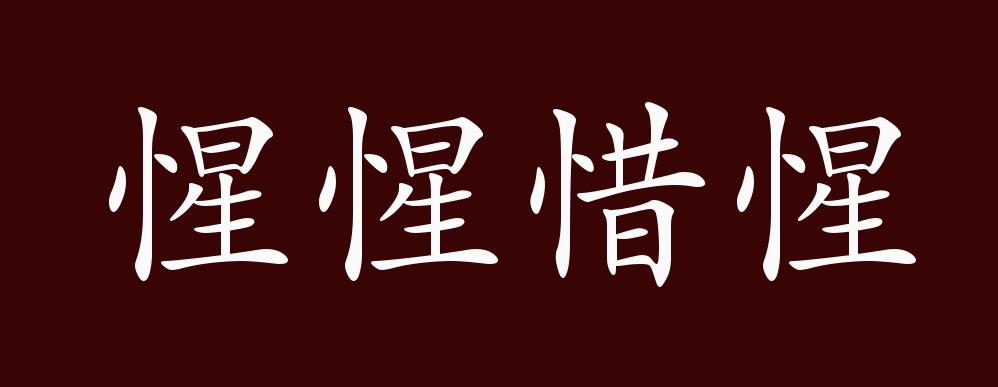第三章 形容词篇
第一组 与for 连用的形容词
1、渴望某事
例句:He is eager for success.
2、因某事而出名(=be well-known for)
例句:Beijing is famous for many places of interests.
3、为某事准备好
例句:I’m ready for the exam.
拓展:be ready to do sth:
1) 准备好做某事
例句:He is ready to go to London.
2) 乐意做某事
例句:She’s ready to help others.
4、对某事负责
例句:You should be responsible for your work!
5、适合某事
例句:Are you really fit for the job?
6、对某事感到抱歉(遗憾)
例句:I’m sorry for giving you so much trouble.
7、因某事而感激某人
例句:She was grateful to him for being so good to her
第二组 与with 连用的形容词
1、 因某人而生气
例句:I got very angry with you because you broke my vase. 拓展:be angry at sth: 因某事而生气
2、忙于某事
例句:I’m busy with my homework.
拓展:be busy (in) doing sth
I’m busy (in) doing my homework.
3、对……熟悉
例句:She’s familiar with this area.
4、为……喜爱
例句:This kind of watch is very popular with ladies.
5、对……满意
例句:You shouldn’t be content with such a small success. 拓展:be content with =be satisfied with
6、对……有耐心
例句:We must be patient with our children.
第三组 与of 连用的形容词
1、害怕
例句:She is afraid of snakes.
2、知道
例句:The manager was not aware of the problems.
3、能够,有能力
例句:He is capable of this task though it is difficult.
4、确信,肯定(=be certain of)
例句:We should be sure of the facts before they arrive. 拓展:
(1) be sure of sth/doing sth
(2) be sure that + 句子
例句:I’m sure that our team will win.
(3) be sure to do sth 务必/一定做某事
例句:They are sure to be late.
5、喜欢 (=be keen on=like)
例句:I’m fond of playing football.
6、值得
例句:The book is worthy of being read.
拓展:be worthy of doing =be worth doing
The book is worthy of being read. = The book is worth reading.
第四组 与to 连用的形容词
1、和……接近
拓展:close 和closed 大比拼:
close:
(1) close 做动词,表“关上”,例如close the door.
(2) close 做形容词,表“接近的,亲密的”,例如close friends. closed:
做形容词,表“关着的”,例如:The shop is closed.
记住:
open 做动词表示“打开”时,反义词为close (关上)。
open 做形容词表示“开着的”时,反义词为closed (关着的)。
2、与……相等; 胜任
例句:Tom is equal to John in age.
3、对……有害
例句:Smoking is harmful to your health.
拓展:be harmful to = do harm to
4、对……有用
例句:Your advice might be useful to other students.
5、与……相似
例句:Your room is similar to mine.
6、对……有礼貌(反义:be rude to 表示对……粗鲁) 例句:You should be polite to the old.
第五组 与at 连用的形容词
1、擅长某事/做某事
例句:I’m good at playing the violin.
拓展:be good at = do well in
She is good at English. = She does well in English.
2、不善于
例句:He is bad at Math.
拓展:注意be bad at和be bad for的区别:
(1) be bad at表示不善于某事或不善于做某事,反义词是be good at;
(2) be bad for表示对……有害,反义词是be good for。
3、因……而悲伤 (=be sad about)
例句:You are sad at not being invited.
4、因某事而生气
例句:Everybody will be angry at being kept waiting so long.
提醒:如果表达“对某人生气”, 用be angry with sb.
5、胜任(做)某事
例句:Rex is an expert at opening the gate.
第六组 其它搭配
1、与……不同
例句:Sandy’s room is different from mine.
2、远离
例句:The school is far (away) from my house.
3、在……薄弱
例句:She is weak in arithmetic.
4、喜欢(=be fond of =like)
例句:They are keen on playing football.
5、对……好奇
例句:You might be curious about the students in other countries.
第四章 南外冲刺篇
第一组 时间前的介词搭配
第一组 时间前的介词搭配
1、at:
(1)用于表示时刻,后接某一时间点:
at 7 o’clock, at midnight, at noon, at dawn(黎明)
注意:11点20分:twenty past eleven;
7点45分:fifteen to eight.
(2)固定搭配:
at present(现在), at the weekend
2、on:
(1)后接星期几:
on Sunday, on Monday
(2)特指某一天的上午、下午、晚上: on Tuesday afternoon, on a cold night, on Christmas eve, on the morning of July 1st
3、in:
(1)年、月、周、季节前:
in 2014, in September, in summer, in this week
(2)泛指在上午、下午、晚上:
in the morning, in the afternoon, in the evening
口决:
年月周前要用in ,日子前面却不行。
遇到几号要用on ,上午下午又是in 。
要说某日上下午,用on 换in 才能行。
午夜黄昏须用at ,黎明用它也不错。
at 也用在时分前,说“差”可要用上to ,
说“过”只可使用past ,多说多练牢牢记。
第二组 地点前的介词搭配
1、at :后常接比较小的、具体的地点:
at school
at home
at Dan Feng Street at the station
2、in: 后常接比较大的、宽敞的地点:
例句:She will arrive in shanghai at ten.
3、表示地点方向的on ,under ,over ,below:
(1)on:在……上面(有接触)
on the table
(2)over:在……正上方(无接触)
fly over the mountain
(3)under:在……正下方,在……之内
The twin sisters put the basket under the tree.
(4)below:在……下方(不一定是正下方)
4、in front of ,behind:
(1)in front of :在……的前面
There is a car in front of the house.
拓展:in the front of: 在……内部的前面
例句:The blackboard is in the front of the class.
(2)behind :在……后边
5、in ,into ,out of :
(1)in: 在……之内,用于表示静止的位置
例句:There are four girls in the room.
(2)into:进入, 用于表示有特定终点的运动方向,常放在动词之后。如:come ,go ,walk ,jump ,run
例句: I saw John walking into the building.
6、to ,from:
(1)to:到达……地点(目的地) 或方向
例句:Where’s jack? He has gone to London.
(2)from:从……起
例句:How far is it from London to New York?
第三组 校本教材(1)
1、 穿着蓝色的毛线衣 be in the blue sweater
2、 在垃圾桶旁边
beside/ by the litter bin
拓展:介词by 的用法:(很重要哦!)
(1) 在…...旁边:by the lake
(2) 在……之前:by the end of last month
(3) 用…….的方式:by train
(4) 相差:The plane cleared the mountains by 400 feet.
3、 在露营
at camp
拓展:去露营: go camping
4、 玩得开心
have a good time
=have lots of fun
=have a ball =enjoy oneself
5、 盛装打扮 dress up in costumes
6、 在重要的节日里:at important festivals
在国庆节: on NationaltdNuSbjVKK day
7、 请勿挂断电话
hold on = Don’t hang up
8、 带他们去足球场
take them to the football field
拓展:take sb to sp (带某人去某地)
9、 做无用的事
do something useless
拓展:不定代词+形容词(定于后置)
10、拥有更多的机会
have more chances
第四组 校本教材(2)
1、 超过一次 more than once
2、 让我大叫
make me cry
拓展:使役动词(make, let, have)的用法:
make/let/have sb do sth 使(让)某人做某事
3、 一场让人激动的电影
an interesting film
拓展:形容词interesting 和interested 的比较:
interesting 多用来修饰物,翻译为“有趣的”;
interested 多用来修饰人,翻译为“感到有趣的”。
但并不绝对,比如一个很有趣的老师,我们说:an interesting teacher. 类似的,还有:
surprising(令人惊讶的) 和surprised(感到惊讶的)
amazing (令人惊奇的)和amazed (感到惊奇的)
embarrassing(令人尴尬的) 和emwww.58yuanyou.combarrassed(感到尴尬的)
frightening (令人害怕的)和frightened(感到害怕的) 等等
4、 停下来休息
stop to have a rest
拓展:比较stop to do sth 和 stop doing sth:
(1) stop to do sth意为“停下来做另一件事”
(2) stop doing sth 意为“停下正在做的事”
5、 购物 do some shopping (=go shopping)
6、 离开上海去北京:
leave Shanghai for Beijing
拓展:leave sp for sp 离开某地去某地
leave for sp 离开前往某地
7、 明天:tomorrow
后天:the day after tomorrow
昨天:yesterday
前天:the day before yesterday
明年:next year
后年:the year after next
去年:last year
前年:the year before last
8、 匆忙去工作
hurry to work = go to work in a hurry
注意:hurry 既可以做动词,也可以做名词。
9、 收到某人来信:
receive a letter from sb = hear from sb
10、 去度假:
go on a holiday = go for a holiday
第五组 校本教材(3)
1、 加入游泳俱乐部:
join the swimming club
拓展:比较join 和join in:
(1) join 后面通常加人 、组织或者政党; join us/ the club/ the party(政党)
(2) join in 后面通常加活动; join in the football match
2、 把毛笔递给我:
pass the writing-brush to me
拓展:pass sb sth = pass sth to sb
3、 记得带上你们的泳衣:
remember to bring your swimsuits
拓展:remember to do sth 记得要去做某事; remember doing sth 记得做过某事
4、 在第十层楼: on the tenth floor
5、 花光钱: run out of the money
6、 邀请我参加一个化妆舞会: invite me to a costume party
拓展:invite sb to sth invite sb to do sth
7、 他倒立:
stand on his head
第六组 校本教材(4)
1、 问题的答案
the answer to the question
拓展:再记住两个常考的:
the key to the problem the entrance to the building
2、 吃新鲜的鱼
eat fresh fish
拓展:搞定fish 这个词:
(1) 表示鱼肉时,为不可数名词;
(2) 表示不同种类的鱼,复数为fishes ;
(3) 表示同种类的鱼,复数为fish (单复同形)。
3、 一个躺在地上的男人 a man lying on the ground
拓展:(1)搞清“lie”这个词:
lie表示“说谎“时,过去式和过去分词均为lied(规则变化) ;
lie表示“躺“时,过去式为lay, 过去分词为laid (不规则变化)。
但lie 的现在分词总为lying 。
(2)分析本短语结构:
lying on the ground 是现在分词短语做后置定语修饰the man。
规律:当被修饰的名词和动作成主动关系时,用现在分词短语做后置定语; 当被修饰的名词和动作成被动关系时,用过去分词短语做后置定语。
4、 放松自己 relax oneself
5、 装满了红苹果
be full of red apples
拓展: be full of = be filled with
6、“四大洋“怎么讲?
(1)太平洋: the Pacific Ocean
(2)大西洋:the Atlantic Ocean
(3)印度洋:the Indian Ocean
(4)北冰洋:the Arctic Ocean
第七组 校本教材(5)
1、 看起来平滑的
look smooth
拓展:这是典型的系表结构,即:系动词+(表语)形容词
主要有:look (看起来)/ taste(尝起来)/ sound(听起来)/ smell(闻起来)/ feel (感觉起来) + adj.
2、 看书 read some books = do some reading
3、 借钱给我
lend me some money = l//www.58yuanyou.comend some money to me
拓展:比较lend 和 borrow:
(1)lend表示借出。
借给某人某物:lend sb sth = lend sth to sb
(2)borrow 表示借进。
从某人借进某物:borrow sth from sb
但borrow 后不可跟双宾语,即绝对不可以有:borrow sb sth () 谨记!
4、 用英语将它说出来
say it in English
拓展:比较say 和 speak的区别:
(1) say后面常直接跟“说话的内容”,上例中的it 即指代“所说的具体内容”;
(2) speak后面常直接跟“语言”,比如“你会说英语吗?”应当译为: Can you speak English?
5、 喝茶的时间 time for tea = time to drink tea
6、 和“step”相关
(1) 一步一步:step by step
(2) 走路小心:watch/mind your step
(3) 出去:step out
7、 上网 surfing the Internet
8、 成千的:
thousands of
易错:(1)“五千个橘子“怎么讲?(很具体的数字,thousand 后面不要加S) five thousand oranges
(2)“成千的橘子“怎么讲?(”成千“并不确定几千,固定搭配thousands of) thousands of oranges
第八组 校本教材(6)
1、 听到某人唱歌
hear sb sing songs
拓展:hear sb do sth 听到某人做某事(强调全过程)
hear sb doing sth 听到某人正在做某事
2、 属于我
belong to me
拓展:This is my book.
= This book is mine. = This book belongs to me.
3、 在……对面
on the opposite side o原由网f
4、 在六点钟左右
at around/ about six o’clock
5、 为……准备 Prepare for
6、 担心 worry about = be worried about
7、 其它东西
something else = other things
拓展:
(1)关于不定代词;
对于如something, anything, nothing, somebody, anybody, nobody等不定代词,修饰其的形容词需放在不定代词后面。
如:Do you want to tell me something important?
(2)比较 else 和 other;
二者都是形容词,意思为“其它的”;
else 通常放在不定代词或疑问代词后面作后置定语;
other 通常放在名词前作前置定语;
思考下面两题:(填else 还是other ?)
1) What _____ things do you want to buy?
2) What _____ do you want to buy?
8、 事实上 in fact
9、 吃早饭的时间 time for breakfast = time to have breakfast
10、 步行去上学:
walk to school = go to school on foot
拓展:类似的,还有:
take a bus to school =原由网 go to school by bus
take a train to London = go to London by train









